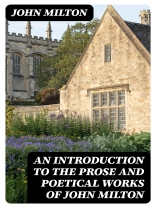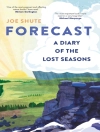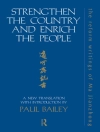In 'An Introduction to the Prose and Poetical Works of John Milton, ’ the author meticulously examines Milton’s expansive oeuvre, offering readers a comprehensive lens through which to appreciate his groundbreaking contributions to English literature. The book is structured to juxtapose his poetic masterpieces with his fervent prose, highlighting themes of freedom, individualism, and the divine. Milton’s use of blank verse and intricate imagery not only propels his narratives but also reflects the socio-political turbulence of 17th-century England, making the work relevant to the study of the English Renaissance and the evolution of poetic forms. John Milton (1608-1674), a seminal figure in literary history, was deeply influenced by the tumultuous events of his time, including the Civil War and the Interregnum. His passionate advocacy for personal liberties and challenges to ecclesiastical authority infuse his writings with an urgency that resonates today. A scholar, poet, and political figure, Milton’s diverse experiences, including his time spent in Italy and as a civil servant for the Commonwealth, shaped his literary voice and cemented his role as a champion of both art and freedom. I highly recommend this book to scholars, students, and lovers of literature alike. It serves as an essential gateway to understanding Milton’s complex body of work, providing insightful analyses that unravel the intricate relationship between his life experiences and literary output. Whether you are a seasoned Miltonist or a newcomer to his writings, this introduction will enrich your appreciation for one of the greatest poets in the English language.
O autorze
John Milton (1608-1674) was an eminent English poet, polemicist, and man of letters, widely regarded as one of the most influential writers in the English language and world literature. Born in London, he was a scholarly man who studied at Christ’s College, Cambridge, and prepared for a career in the Church of England, though he would later pivot towards the role of a civil servant for the Commonwealth of England under Oliver Cromwell. His erudition is apparent in his literary works which combine extensive knowledge of scripture, classic literature, and contemporary political thought.
Milton’s major contributions to literature include his epic poem 'Paradise Lost, ’ which has profoundly affected English literature with its exploration of the Fall of Man and its intricate portrayal of Satan. Other significant prose works, notably 'Areopagitica’—a spirited defense of free speech and free press—demonstrate his commitment to the political and religious principles that shaped his time. His writings reveal an intense fusion of the classical and the modern, the poetic and the polemical, all driven by a powerful moral sense. Although 'An Introduction to the Prose and Poetical Works of John Milton’ would serve to encapsulate his oeuvre, Milton’s influence extends beyond what any single volume could contain, functioning as an integral stitch in the fabric of literary history.












